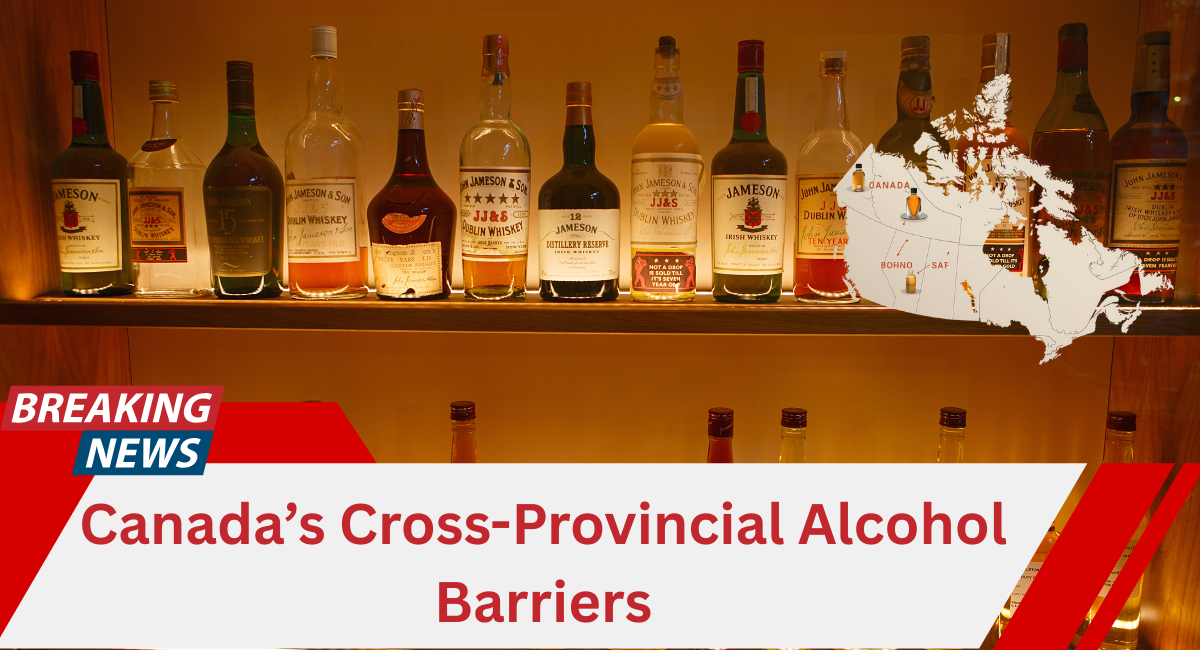For Calgary distillery owner Faye Warrington, expanding beyond Alberta shouldn’t be this complicated. Years ago, when someone in Ontario asked to buy a case of her products, she quickly learned how restrictive Canada’s interprovincial alcohol rules can be. After quoting $150 for a case, she later discovered the buyer had been told they’d need to pay more than $600 to purchase the same product through the provincial liquor board. That gap shocked her and highlighted a much bigger issue facing small producers across Canada.
These difficulties are echoed nationwide, according to a recent report from the Canadian Federation of Businesses. It reveals that small producers face steep barriers when trying to sell alcohol outside their home province, including inconsistent rules, heavy paperwork, unclear processes, and steep shipping or markup costs. Despite the Canadian Free Trade Agreement being in place since 2017, alcohol was deliberately left out, allowing provinces to maintain strict control over how products enter and move through their markets.
EXPLORE MORE: Three Canadian Dividend Stocks Strengthening Payout Growth for Long-Term Investors
Policy analyst SeoRhin Yoo explains that the rules differ widely from province to province. Everything from labeling standards to registration procedures and lab testing requirements varies sharply. Alberta, for example, does not require mandatory lab testing, but its regulatory body can request product samples under specific circumstances. Other provinces have far more demanding processes.
Impact on Small Businesses
For many small distilleries, these regulatory hurdles are more than bureaucratic inconveniences—they can determine whether a business survives or folds. Smaller producers often lack dedicated compliance teams, forcing owners to spend significant time navigating paperwork rather than focusing on production or marketing. These costs also reduce profitability, making expansion into other provinces financially unviable for many.
Economic and Cultural Consequences
Experts argue that these barriers not only limit business growth but also restrict consumer choice. Canada’s thriving craft alcohol sector has seen a surge in innovation, from small-batch spirits to experimental blends, yet provincial restrictions prevent these products from reaching a wider audience. Critics suggest that the current system discourages entrepreneurship and slows the overall growth of the Canadian craft beverage industry.
Calls for Reform
Industry groups and advocacy organizations are increasingly calling for policy changes to create a truly national market for alcohol. Some suggest harmonizing labeling, testing, and registration requirements across provinces, while others propose clearer guidelines and reduced fees for interprovincial shipments. These changes, proponents argue, could empower small producers, stimulate competition, and ultimately benefit Canadian consumers.
Looking Ahead
For distillers like Warrington, reform cannot come soon enough. As demand for craft spirits grows, small businesses are eager to expand their footprint and compete on a national scale. Until meaningful changes are enacted, however, navigating Canada’s patchwork of provincial alcohol regulations remains a costly and time-consuming challenge.


